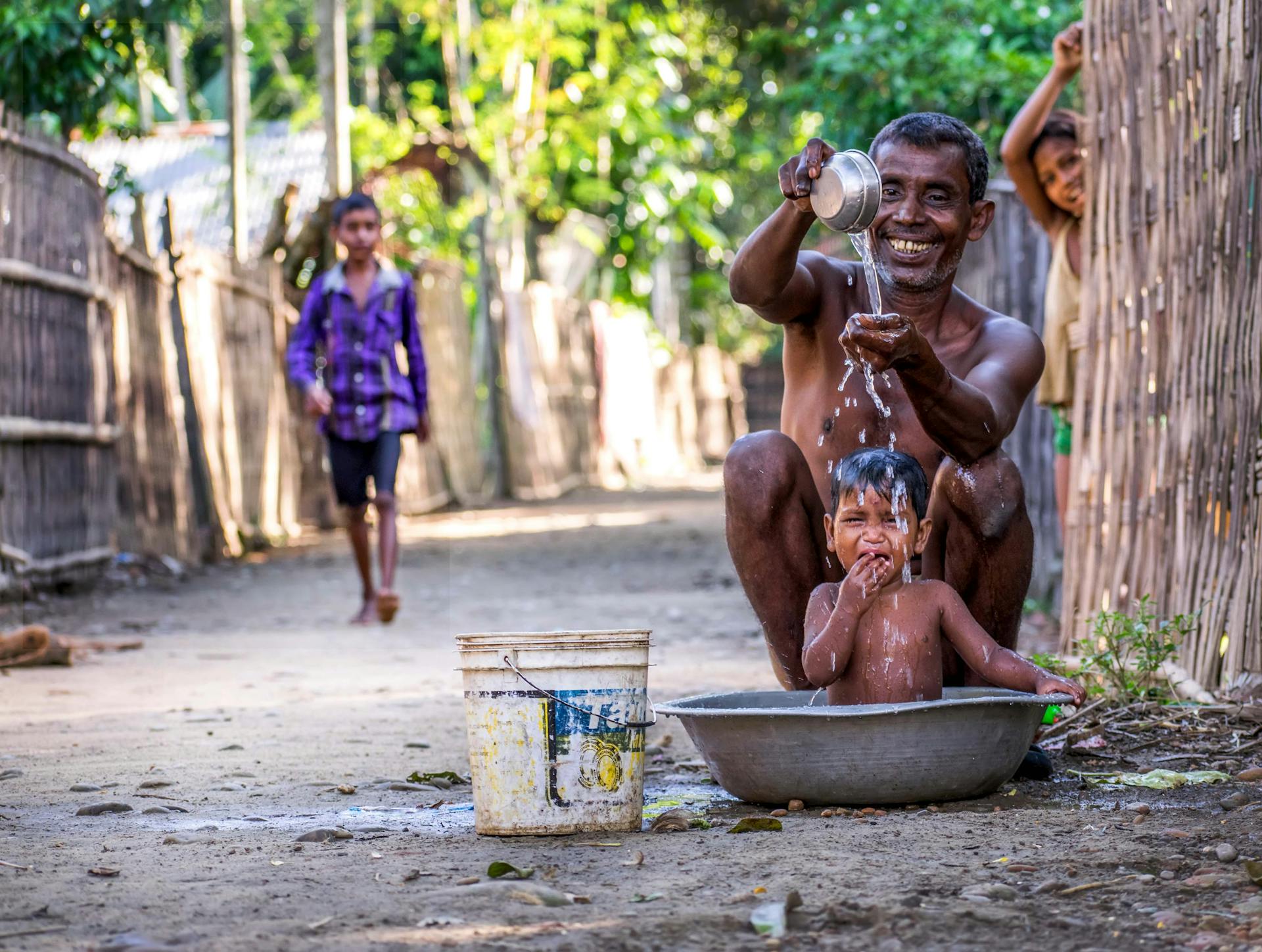Kannathangal, Sriperumbatur Block, Tamil Nadu, India
In collaboration with

February 2024 – December 2024
Water and sanitation facilities in a village and its school. Hygiene education for children to promote effective community behaviour change.
Objectives
- Improve the community’s drinking water system.
- Enhance individual household sanitation facilities.
- Construct a separate sanitation block for boys and girls at the school and provide access to safe water with storage facilities.
Beneficiaries
110 direct
The 22 families in the village.
On the Ground
High incidence of open defecation and need for hygiene education among children. Deteriorated school sanitation facilities that are not gender-separated.
In India, nearly one in two people practices open defecation, one in three drinks unsafe water, and at least 1,000 children die each day from preventable diseases like diarrhoea. This bleak outlook of the world’s third fastest-growing economy was revealed in the country’s latest census report on drinking water and sanitation.
Health and hygiene heavily rely on the availability of adequate water and sanitation infrastructure, as well as on awareness and attitudes toward health and hygiene. The World Health Organization (WHO) and the United Nations Children’s Fund (UNICEF) estimate that 1.1 billion people lack access to improved water supplies, and 2.6 billion people lack adequate sanitation. Diarrheal morbidity can be reduced by an estimated 6-20% with improvements in water supply and by 32% with better sanitation.
Educating children on hygiene and sanitation is essential, as they are effective agents of change.
The area selected by Habitat India faces issues related to the lack of safe drinking water, which often impacts student attendance. Due to the absence of such facilities, many children—especially girls—drop out of school, affecting their futures.
Rajasthan is India’s most water-deficient state due to a short monsoon season and low rainfall. Unfortunately, nearly 25% of villages in the state suffer from high levels of fluoride in groundwater. Providing safe drinking water in communities and schools is critical.
The selected location in Rajasthan faces issues of inadequate sanitation and hygiene facilities in schools. The bathrooms are in poor condition and non-functional. Thus, constructing new sanitation facilities can allow students, especially girls, to use clean and hygienic facilities.

In Detail
Project Activities
Situation Analysis and Technical Assessment
- Understand on-ground realities and acceptance, including existing infrastructure and available support. Select intervention sites.
- Obtain government permits for project implementation
Orientation, Awareness, and Training
Construct basic infrastructure and support services and provide technical assistance: Construction will be conducted under technical supervision to ensure quality materials and adherence to design and construction timelines.
Project Implementation: Monitoring and Supervision
- Ensure regular monitoring through visits and periodic updates.
- Oversee adherence to the construction plan in coordination with field members, government authorities, and technical experts.
Documentation and Evaluation
- Ensure consistent technical monitoring, review, and evaluation support to achieve expected outcomes.
- Prepare quarterly and annual progress reports, including financial statements, to share with stakeholders and donors
Prospects for Sustainability
Regular monitoring and evaluation of facilities and program-related training ensure sustainability.

